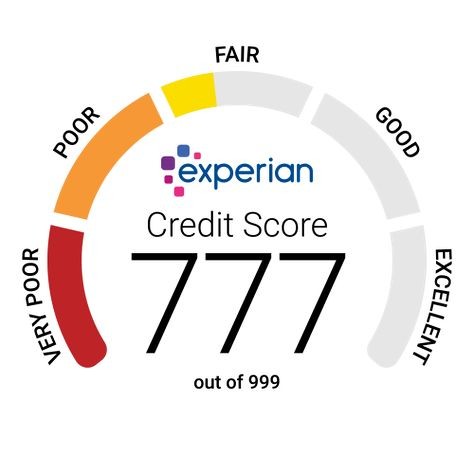Experian is a globally-recognised multinational credit information company that has been operational in India since 2010. According to the RBI guidelines, the company monitors credit transactions among Indian citizens and generates credit reports to assign them credit scores. The Experian credit score is important for both lending institutions and borrowers when it comes to obtaining or lending finance. In this article, you will understand what Experian credit score is and why it is so important.
Understanding the Experian Credit Report
Based on an individual’s credit history and behaviour, Experian generates credit reports with detailed information about their financial transactions. It records each Indian citizen’s repayment history, active credit lines, and existing loans and balances. The credit bureau obtains this data from approved entities, and financial institutions can access it when they receive credit applications. Based on this information, the credit bureau determines Experian credit scores and establishes applicants’ credibility.
Understanding Experian Credit Score
An Experian credit score is a three-digit number ranging from 300 to 900. The credit information company calculates the scores based on an individual’s credit length, usage, diversity, repayment history, and other factors. The credit score represents a person’s creditworthiness and their personal loan eligibility in the future. A high score improves the chances of obtaining loans with added benefits like lower interest rates, longer repayment terms, and favourable terms and conditions.
Financial institutions perceive high-score applicants as responsible credit users with minimum risk of a payment default. Ranging from 300 to 900, below are the ranges of Experian credit scores:
- No Score: No Credit History – Indicates no credit history in the past.
- 300-549: Poor – Indicates poor financial management with bad credit utilisation and payment defaults. Such applicants are high-risk borrowers for lending institutions with a low chance of obtaining credit.
- 550-649: Fair – Indicates occasional payment defaults with considerable risk to lending institutions. Such applicants might be liable to loan defaults in certain situations.
- 650-749: Good – Indicates a balanced credit history, demonstrating timely payments and financially sound decision-making. Such applicants are low-risk borrowers for lending institutions with a high chance of obtaining credit.
- 750-799: Very Good – Indicates good financial management with regular repayment history and responsible credit utilisation. Such applicants have proven creditworthiness with minimal risk of default.
- Above 800: Excellent – This is the highest credit score range Experian gives individuals with exceptional credit records. Such applicants have very low risk and are likelier to get the best deals on credit and loans.
Also Read : What is CIBIL Score & How to Check CIBIL Score Online in Easy Steps?
Importance of Maintaining a High Credit Score
After understanding what a credit score is, let’s dive into the benefits of maintaining it high.
- Lower Interest Rates on Loans and Credit Cards
Interest rate is one of the main costs for borrowing money, often depending on the applicant’s credit score. Those with a decent credit score have better chances of qualifying for the lower interest rates, which means they have to pay lower interest charges on loans and credit card balances. A lower interest rate means sooner loan repayment and more money saved.
- Better Chance for Approval
Borrowers with poor credit scores have a high chance of being turned down by most lending institutions. A good credit score boosts an applicant’s chances of getting new credit approval, enabling loan seekers to apply more confidently.
- More Negotiating Power
Those with good credit scores have a chance to negotiate lower interest rates on loans. They have more lending institutions and offers to choose from, giving them more bargaining power. However, lending institutions will likely refrain from budging on loan rates and terms for applicants with low credit scores.
- Higher Borrowing Limit
An individual’s borrowing capacity and personal loan eligibility highly depend on their income and credit score. Lending institutions are more willing to let them borrow a higher amount due to their history of timely repayments.
- Longer Loan Terms
Most lending institutions use credit scores as part of their borrower screening process. A poor credit score due to previous default can pose them as high-risk borrowers. As a result, lending institutions avoid risking their money with such borrowers for long. That is why high-score individuals get longer loan terms with easier EMIs and manageable repayment.
Understanding Experian credit score is straightforward, as it largely depends on an individual’s credit history, repayment capacity, current debts, credit utilisation ratio, etc. A good score indicates sound financial health with a high repayment capacity. Those looking for a loan should check their credit score online and maintain it above 630 to get competitive interest rates from the lending institution of their choice.
About the Author
Amaira Sharma is finance expert and former business growth strategist who has more than 8+ years experience in the industry, now she helps others to get better financial stability and standards. She loves to write useful tips on personal finance and businesses.









